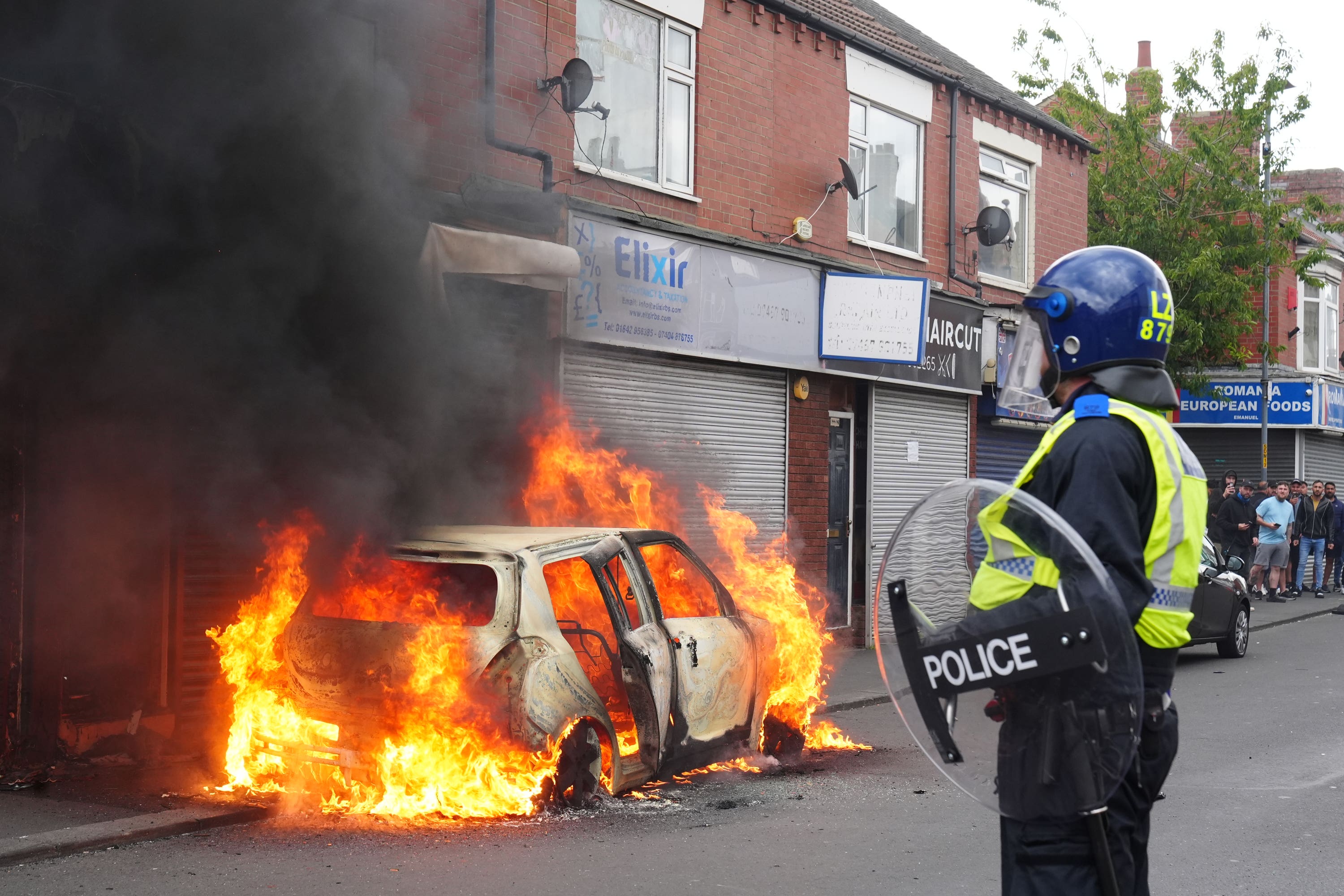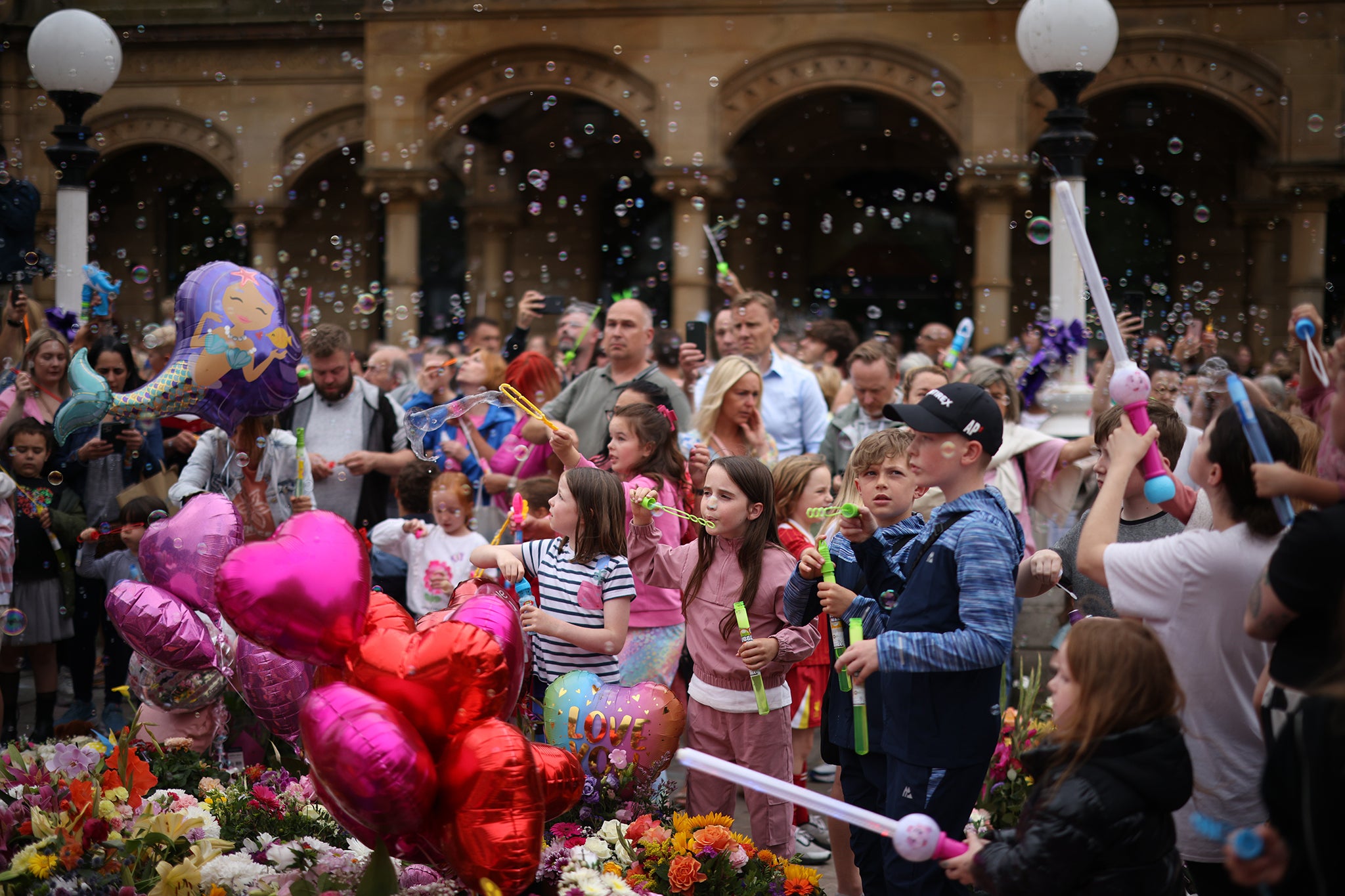Why are riots happening in the UK? Everything you need to know as more planned today
Online disinformation has stoked tensions amongst the far-right
Riots have spread across England and Northern Ireland in recent days following the killings of three young girls in Southport on 29 July.
Authorities are working to curb the serious civil disorder, with over 400 arrests made and dozens of police officers injured.
The scenes began with one far-right riot on July 30. This then led to dozens of similar events taking place across the UK over the weekend. More violence has been planned for Wednesday, with migrant centres all over the country thought to be the targets for violence.

For the latest updates, follow The Independent’s live coverage
Prime minister Keir Starmer has held two emergency meetings as he deliberates a response to the disorder. Speaking on Tuesday, he said communities “will be safe.”
“We’re doing everything we can to ensure that where a police response is needed, it’s in place, where support is needed for particular places, that that is in place,” he said.
Politicians on the right such as Nigel Farage have accused the PM of not dealing with the escalating violence quickly enough, and of overseeing ‘two-tier policing’. This far-right talking point has also been parroted by Twitter / X owner Elon Musk, who publicly mocked and criticised Sir Keir on Tuesday.
As the far-right riots continue to take place across the UK, here’s everything you need to know:
What started the riots?
The first riot took place in Southport on 30July. It was sparked by the deaths of Bebe King, six, Elsie Dot Stancombe, seven, and Alice Dasilva Aguiar, nine. They were attending a Taylor Swift-themed dance class in the town the day before when they were killed in a multiple stabbing which left eight other children injured.
Axel Rudakubana, now 18, has been charged with their murders alongside 10 counts of attempted murder. His identity was initially not revealed by police due to him being 17 when he was arrested. This was because criminal law in the UK grants children appearing in court automatic anonymity.

Before Rudakubana’s identity was revealed, false claims that he was a Muslim and asylum seeker proliferated online. Posts and videos sharing misinformation accrued millions of views, provoking anger amongst the far-right. Reports show that messaging platforms with anonymity features, such as Telegram, were then used to mobilise the large group.
One channel on the Russian-owned platform – named ‘Southport Rise Up’ – had over 13,000 members at one point, as it continued to post locations for rioters to target even over the weekend. The channel has since been removed, with a spokesperson saying the platform’s rules “explicitly forbid calls to violence.”
Mr Rudakubana’s anonymity was lifted the day after the Southport riot, on 1 August. At Liverpool Crown Court, the presiding judge said this was because he would turn 18 in just six days, and adding: “Continuing to prevent full reporting at this stage has the disadvantage of allowing others who are up to mischief to continue to spread misinformation.”

Despite this, far-right rioting still took place over the weekend, on August 3 and 4. Those involved could be seen shouting Islamophobic and anti-immigrant chants, fighting with police, looting, and attacking people of colour. One incident in Rotherham saw rioters set alight a hotel thought to be housing asylum seekers, and then barricading the exit. No injuries were reported.
Riots broke out dozens of towns and cities. Manchester, Liverpool, Hull, and Belfast all saw violent scenes as rioters fought police or clashed with counter-protesters.
And more are planned. Far-right organisers have attempted to mobilise people to riot in nearly 40 locations on Wednesday, making migrant centres the target.







